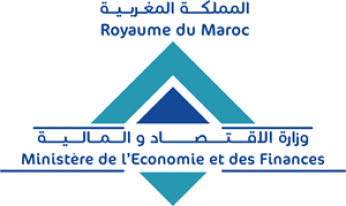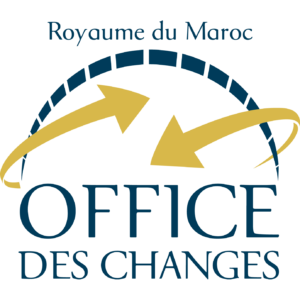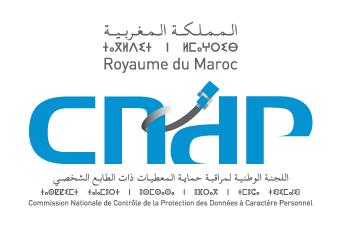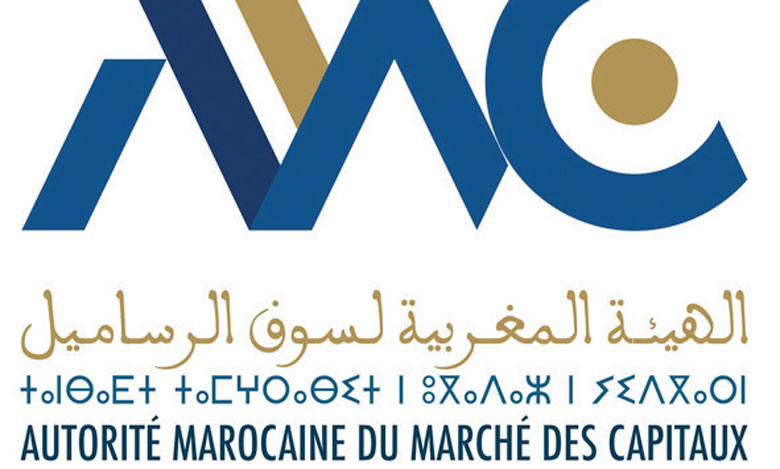Regulatory bodies
Understand the regulatory framework around Fintech in Morocco
Central bank of Morocco Ministry of Economy and Finance Capital Market Authority Insurance Authority of Morocco Data Protection Commission Information Systems Authority
Central bank of Morocco
Bank Al Maghrib
Central Bank of Morocco
Responsible for granting the
necessary authorizations and
approvals to conduct banking
business, issuance of prudential and
accounting standards
applicable to the institutions
under its supervision
Which activities are regulated?
Bank Al-Maghrib is the central bank of the Kingdom of Morocco, and as such, it has the responsibility of regulating and supervising the country’s banking and financial system. It regulates commercial banking & payment services:
- • Commercial banking: lending and investment activities, risk management practices, and compliance with regulatory requirements
-
• Payment services: payment service providers, such as payment processors, money transfer companies, and electronic payment platforms, to ensure that they operate in a safe, efficient, and secure manner
What are the different licences?
Every actor willing to either: receive funds from the public, conduct credit operations or provide/manage means of payment has to have a licence
-
• Bank
Banks can conduct every activity regulated by Bank Al Maghrib; they are the only actors authorised to collect savings from the public or companies -
• Financing companies & microfinance associations
They can conduct specific credit operations but cannot collect funds from the public -
• Payment institution
They can conduct money transfer transactions, do cash-in & cash-out operations on a payment account, execute payment transactions by any means of remote communication
What are the main laws of the regulatory framework?
• Law No. 103-12 relating to credit institutions & similar bodies, as amended & completed (March 2022)
• Conditions for authorisation
Ministry of Economy and Finance

Ministry of Economy and Finance
In charge of public finances of Morocco
Ministry in charge of Morocco’s economic and financial policy
What are the main laws of the regulatory framework?
Within the framework of its attributions, the Ministry of Finance is in charge of financial and monetary matters, including credit and external finance policies. In addition, it ensures the financial supervision of public enterprises and establishments or those with state participation and, where appropriate, contributes to a large extent to their transfer to the private sector, within the legislative and regulatory framework of the privatisation process.
• General Instruction on Foreign Exchange (2022)
• Clause No. 155 of the General Instruction of the Exchange Office
What is the regulation around foreign exchange?

Office des Changes (Foreign exchange Office) is responsible for issuing measures relating to the regulation of foreign exchange & for establishing the statistics of foreign trade and balance of payments
Foreign currency denominated transactions are strictly regulated & should be carried out through licenced intermediaries
-
• Moroccan resident citizens are required to repatriate all income and property acquired abroad;
-
• It is illegal for Moroccan citizens to transfer money abroad except for operations authorized and regulated by the foreign exchange office;
-
• It is illegal to keep accounts in foreign currencies for Moroccans and Moroccan companies except for cases authorized and regulated by the foreign exchange office.
However, these restrictions apply only to residents and local companies: foreign investors have total guarantee for the convertibility of their investments and profits under certain conditions. Foreign investors are allowed, following the accomplishment of some formalities, to freely transfer abroad the whole proceeds of their investments in Morocco (i.e. dividends, shares sale price, and liquidation income under the condition that the initial investment is realised in one of the foreign currencies listed by the Moroccan Central Bank).
A strict formalism to prove the initial investment in Morocco is required. Investors should keep a form named Formule 2 which is provided by any Moroccan bank receiving transfers from abroad. The Office des Changes should be informed in written form each time an investment is made to simplify formalities when paying back the investment.
-
• Ministry of Economy & Finance
finances.gov.ma -
• Organic law
lof.finances.gov.ma -
• Institutional investors portal
AMMC
Regulatory authority for the capital market
Responsible for ensuring the proper functioning of the capital market and the control of the activity of the various organizations and persons subject to its control
Which activities are regulated?
AMMC’s mission is to protect investors and promote the development of the Moroccan capital market. Specifically, the AMMC regulates public offerings of securities, activities of brokerage firms (investment banks & other brokerage intermediaries), collective investment schemes, securities issuance and ensures market surveillance
What are the different licences?
• Stock exchange companies
They are allowed to conduct transactions in financial instruments listed on the Stock Exchange, receive & transmit orders, conduct some securities placement, manage account & advise/assist their clients with respect to their financial investments
• Collaborative finance companies
They manage collaborative finance platform
• Management companies for investment vehicles & fund
They are authorised to manage the UCITS (OPCVM) and other investment vehicles
What are the main laws of the regulatory framework?
• Law No. 19-14 on the stock exchange, brokerage companies and financial investment advisers
• Law n°15-18 on collaborative financing
Insurance Authority of Morocco

ACAPS
The Supervisory Authority of Insurance and Social Welfare
In charge of supervising insurance and reinsurance companies and the distribution network as well as social welfare organizations
What are the authority’s missions?
• Supervise and monitor the solvency of insurance and reinsurance companies and intermediaries and the financial sustainability of social welfare schemes.
• Ensure compliance by the operators with the regulations applicable to the insurance and social welfare sector
• Control business practices and handle the claims relating to the sectors under its supervision.
• Issue or withdraw licenses relating to the exercise of the insurance and reinsurance activity and the presentation of insurance transactions by intermediaries
What are the different licences?
• Insurance and reinsurance companies:
The license to operate in the insurance sector. These licenses are granted by categories of insurance and reinsurance operations.
• Insurance intermediaries: agents and brokers:
-> Insurance agents can distribute insurance company products; they may represent a maximum of 2 insurance and reinsurance companies, with the condition of having the approval of the first company.
-> Insurance brokers represent clients to insurance and reinsurance companies with regards to risk placement
What are the main laws of the regulatory framework?
• Insurance regulation • Social Welfare Regulation • Licencing process
Data Protection Commission

CNDP
National Supervisory Commission for the Protection of Personal Data
Responsible for verifying that the processing of personal data is lawful, legal and does not infringe on privacy and fundamental human rights and freedoms
What is the regulation around personal data?
The obligations of any personal data processors are: (i) to not process any personal data without the consent of the concerned person; (ii) to declare the process of personal data to the Moroccan competent authority, the CNDP (National Supervisory Commission for Personal Data Protection); and (iii) to apply for the CNDP’s authorisation in order to transfer the processed personal data outside of Morocco, or in order to process personal data considered as sensitive data. The rights of persons whose personal data is processed are the rights to information, to access, to modification and to objection.
Morocco ambitions to update this regulatory framework to become GDPR compliant to be considered by the EU as a country which provides a sufficient privacy protection level; banks, having already many clients with European nationality are already complying with GDPR provisions
What are the main laws of the regulatory framework?
• Law No. 09-08 on the protection of individuals with regard to the processing of personal data
DGSSI
Directorate-General for Information Systems Security
National authority for the security and defence of information systems
What is the regulation around cybersecurity?
Morocco has put in place restrictions on the location of data hosting: sensitive information systems and data must be hosted on the national territory
- • Data handled by financial institutions (banks, insurance companies, payment institutions) being mostly considered as “sensitive” and thus must be hosted on the national territory
- • Exceptions exist but have to first get approval from the authorities to prove that the solution proposed is secure
What is the regulation around digital trust services?
Morocco introduced in 2020 a regulatory framework for digital trust service provision, allowing for digital signature & identification/authentication.
Law No. 43-20 on trust services for electronic transactions defines the status of digital trust services providers and modifies the Commercial Code, allowing transactions carried out by credit institutions and similar bodies to be established and kept in electronic form.
The decrees implementing the law were published in the beginning of 2022.
What are the main laws of the regulatory framework?
• Law No. 05-20 on cybersecurity
• Law n°43-20 on trust services for electronic transactions
• Decree No. 2-22- 687 implementing Law No. 43-20 on trust services for electronic transactions
Bank Al Maghrib
Central Bank of Morocco
Responsible for granting the
necessary authorizations and
approvals to conduct banking
business, issuance of prudential and
accounting standards
applicable to the institutions
under its supervision
Which activities are regulated?
Bank Al-Maghrib is the central bank of the Kingdom of Morocco, and as such, it has the responsibility of regulating and supervising the country’s banking and financial system. It regulates commercial banking & payment services:
- • Commercial banking: lending and investment activities, risk management practices, and compliance with regulatory requirements
-
• Payment services: payment service providers, such as payment processors, money transfer companies, and electronic payment platforms, to ensure that they operate in a safe, efficient, and secure manner
What are the different licences?
Every actor willing to either: receive funds from the public, conduct credit operations or provide/manage means of payment has to have a licence
-
• Bank
Banks can conduct every activity regulated by Bank Al Maghrib; they are the only actors authorised to collect savings from the public or companies -
• Financing companies & microfinance associations
They can conduct specific credit operations but cannot collect funds from the public -
• Payment institution
They can conduct money transfer transactions, do cash-in & cash-out operations on a payment account, execute payment transactions by any means of remote communication
What are the main laws of the regulatory framework?
• Law No. 103-12 relating to credit institutions & similar bodies, as amended & completed (March 2022)
• Conditions for authorisation
Ministry of Economy and Finance
In charge of public finances of Morocco
Ministry in charge of Morocco’s economic and financial policy
What are the main laws of the regulatory framework?
Within the framework of its attributions, the Ministry of Finance is in charge of financial and monetary matters, including credit and external finance policies. In addition, it ensures the financial supervision of public enterprises and establishments or those with state participation and, where appropriate, contributes to a large extent to their transfer to the private sector, within the legislative and regulatory framework of the privatisation process.
• General Instruction on Foreign Exchange (2022)
• Clause No. 155 of the General Instruction of the Exchange Office
What is the regulation around foreign exchange?

Office des Changes (Foreign exchange Office) is responsible for issuing measures relating to the regulation of foreign exchange & for establishing the statistics of foreign trade and balance of payments
Foreign currency denominated transactions are strictly regulated & should be carried out through licenced intermediaries
-
• Moroccan resident citizens are required to repatriate all income and property acquired abroad;
-
• It is illegal for Moroccan citizens to transfer money abroad except for operations authorized and regulated by the foreign exchange office;
-
• It is illegal to keep accounts in foreign currencies for Moroccans and Moroccan companies except for cases authorized and regulated by the foreign exchange office.
However, these restrictions apply only to residents and local companies: foreign investors have total guarantee for the convertibility of their investments and profits under certain conditions. Foreign investors are allowed, following the accomplishment of some formalities, to freely transfer abroad the whole proceeds of their investments in Morocco (i.e. dividends, shares sale price, and liquidation income under the condition that the initial investment is realised in one of the foreign currencies listed by the Moroccan Central Bank).
A strict formalism to prove the initial investment in Morocco is required. Investors should keep a form named Formule 2 which is provided by any Moroccan bank receiving transfers from abroad. The Office des Changes should be informed in written form each time an investment is made to simplify formalities when paying back the investment.
-
• Ministry of Economy & Finance
finances.gov.ma -
• Organic law
lof.finances.gov.ma -
• Institutional investors portal
AMMC
Regulatory authority for the capital market
Responsible for ensuring the proper functioning of the capital market and the control of the activity of the various organizations and persons subject to its control
Which activities are regulated?
AMMC’s mission is to protect investors and promote the development of the Moroccan capital market. Specifically, the AMMC regulates public offerings of securities, activities of brokerage firms (investment banks & other brokerage intermediaries), collective investment schemes, securities issuance and ensures market surveillance
What are the different licences?
• Stock exchange companies
They are allowed to conduct transactions in financial instruments listed on the Stock Exchange, receive & transmit orders, conduct some securities placement, manage account & advise/assist their clients with respect to their financial investments
• Collaborative finance companies
They manage collaborative finance platform
• Management companies for investment vehicles & fund
They are authorised to manage the UCITS (OPCVM) and other investment vehicles
What are the main laws of the regulatory framework?
• Law No. 19-14 on the stock exchange, brokerage companies and financial investment advisers
• Law n°15-18 on collaborative financing
ACAPS
The Supervisory Authority of Insurance and Social Welfare
In charge of supervising insurance and reinsurance companies and the distribution network as well as social welfare organizations
What are the authority’s missions?
• Supervise and monitor the solvency of insurance and reinsurance companies and intermediaries and the financial sustainability of social welfare schemes.
• Ensure compliance by the operators with the regulations applicable to the insurance and social welfare sector
• Control business practices and handle the claims relating to the sectors under its supervision.
• Issue or withdraw licenses relating to the exercise of the insurance and reinsurance activity and the presentation of insurance transactions by intermediaries
What are the different licences?
• Insurance and reinsurance companies:
The license to operate in the insurance sector. These licenses are granted by categories of insurance and reinsurance operations.
• Insurance intermediaries: agents and brokers:
-> Insurance agents can distribute insurance company products; they may represent a maximum of 2 insurance and reinsurance companies, with the condition of having the approval of the first company.
-> Insurance brokers represent clients to insurance and reinsurance companies with regards to risk placement
What are the main laws of the regulatory framework?
• Insurance regulation • Social Welfare Regulation • Licencing process

CNDP
National Supervisory Commission for the Protection of Personal Data
Responsible for verifying that the processing of personal data is lawful, legal and does not infringe on privacy and fundamental human rights and freedoms
What is the regulation around personal data?
The obligations of any personal data processors are: (i) to not process any personal data without the consent of the concerned person; (ii) to declare the process of personal data to the Moroccan competent authority, the CNDP (National Supervisory Commission for Personal Data Protection); and (iii) to apply for the CNDP’s authorisation in order to transfer the processed personal data outside of Morocco, or in order to process personal data considered as sensitive data. The rights of persons whose personal data is processed are the rights to information, to access, to modification and to objection.
Morocco ambitions to update this regulatory framework to become GDPR compliant to be considered by the EU as a country which provides a sufficient privacy protection level; banks, having already many clients with European nationality are already complying with GDPR provisions
What are the main laws of the regulatory framework?
• Law No. 09-08 on the protection of individuals with regard to the processing of personal data
DGSSI
Directorate-General for Information Systems Security
National authority for the security and defence of information systems
What is the regulation around cybersecurity?
Morocco has put in place restrictions on the location of data hosting: sensitive information systems and data must be hosted on the national territory
- • Data handled by financial institutions (banks, insurance companies, payment institutions) being mostly considered as “sensitive” and thus must be hosted on the national territory
- • Exceptions exist but have to first get approval from the authorities to prove that the solution proposed is secure
What is the regulation around digital trust services?
Morocco introduced in 2020 a regulatory framework for digital trust service provision, allowing for digital signature & identification/authentication.
Law No. 43-20 on trust services for electronic transactions defines the status of digital trust services providers and modifies the Commercial Code, allowing transactions carried out by credit institutions and similar bodies to be established and kept in electronic form.
The decrees implementing the law were published in the beginning of 2022.
What are the main laws of the regulatory framework?
• Law No. 05-20 on cybersecurity
• Law n°43-20 on trust services for electronic transactions
• Decree No. 2-22- 687 implementing Law No. 43-20 on trust services for electronic transactions


